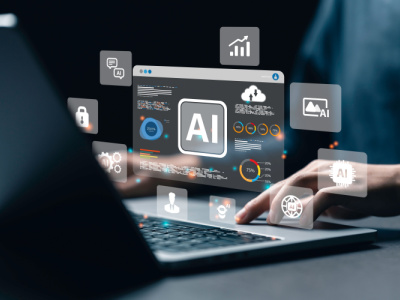Artificial intelligence (AI) is a high-tech revolution that has been around for a while. But it’s reached peak attention recently with the advent and rapid adoption of generative AI (GenAI) apps like ChatGPT and Bard.
But as interest and adoption increase, both are outpacing the availability of people with the knowledge, skills, and abilities to use these tools effectively.
Demand Outpacing Skills
As employers increasingly seek AI expertise, a concerning disparity has emerged between the demand for these skills and the employees available and trained to do the work. Recent research from global talent company Randstad sheds light on this growing skills gap.
Their research suggests the gap may be related to a lack of training to upskill employees.
Randstad’s Workmonitor Pulse, which analyzed job postings and surveyed over 7,000 employees globally, revealed that despite a staggering 2,000% surge in roles demanding GenAI skills, only 10% of employees have been offered AI training in the past year. This is despite the fact that more than half of the surveyed employees expressed a keen interest in this type of training.
But Interest Is Strong
The research also explored varying perceptions about AI’s impact on jobs. Key takeaways include:
- 47% of respondents are optimistic about AI’s role in the workplace, viewing it as a promising tool for enhancing job functions.
- For the younger generation, learning and development stand out as crucial motivators. In fact, Gen Z ranks these opportunities higher than any other nonfinancial incentive at work. A significant 41% of Gen Z respondents even said they would consider leaving their jobs if not offered learning and development opportunities within the next year.
- Over half of those surveyed (52%) believe AI will not only influence their roles but also offer advantages in terms of promotion opportunities.
Randstad’s research findings underscore a pressing issue: While the demand for AI skills is skyrocketing, there’s a notable lack of training to prepare workforces with required competencies.
A Mandate for Upskilling
As AI continues to reshape the job market, it’s imperative for employers and HR professionals to close the current skills gap. Offering targeted training and development opportunities in AI will not only help to meet the growing demand but also address the burgeoning interest in professional development among members of the modern workforce.
For organizations, the message is clear: To stay competitive and ensure a future-ready workforce, investing in AI training isn’t optional—it’s essential.
Lin Grensing-Pophal is a Contributing Editor at HR Daily Advisor.

